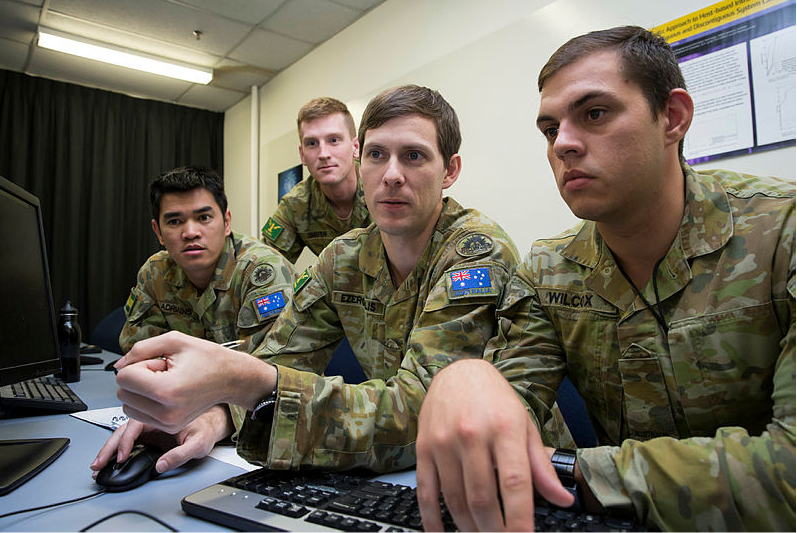
On 30 June 2017, the Turnbull Government made two key announcements to enhance Australia’s cyber security posture—in both war fighting and law enforcement.
In the first of these, the government announced a new Information Warfare Division within our Australian Defence Force (ADF). The new division reflects the changing character of contemporary warfare and the increasing interconnectivity of our deployed systems.
In the contemporary battlespace, cyberspace is key terrain.
The ADF must be able to respond to threats against its deployed command and control systems, operating on land, in the air or at sea. It must possess the capability to successfully prosecute the nation’s wars in cyberspace.
In today’s digital world, our ADF must be able to control and influence the information domain during conflict and pre-conflict phases. In future wars, it will be the information domain where key engagements take place in support of the application of power in the physical domain.
The ADF needs to optimise its ability to use and access the information domain to deliver kinetic and non-kinetic effects, while degrading the capacity of potential adversaries. The Information Warfare Division will be focused on enhancing those cyber capabilities. The ADF is preparing to fight against cyber adversaries that may attack Australia and harm our national interests. The $400 million investment in cyber capabilities outlined in the 2016 Defence White Paper will support growth of existing cyber operations as part of the toolkit for combating national threats.
People are at the heart of this capability. The 900 ADF positions announced in the 2016 Defence White Paper will create the critical mass of highly skilled professionals needed to match our capabilities in other domains of war.
The development of this workforce will provide opportunities for Australian industry. Skilling and training this new workforce will require innovative approaches and adaptive support systems to keep pace in such a dynamic environment.
In the second announcement, the government noted that it had directed the Australian Signals Directorate (ASD) to use its offensive cyber capabilities to disrupt, degrade, deny and deter organised offshore cybercriminal networks.
In April 2016, the Prime Minister publicly acknowledged ASD’s offensive cyber capability when he launched Australia’s Cyber Security Strategy. The government has also acknowledged that ASD uses its offensive cyber effects in support of Australian troops against Daesh in the Middle East.
However, this latest announcement goes further—it sees ASD’s offensive cyber capabilities being used to defend Australians from organised overseas cybercriminal networks.
Cybercrime is conservatively estimated to cost the Australian economy $1 billion a year. In the 2016–17 financial year alone, Australia received over 47,000 reports of cybercrime. Notably, 23,700 of these have been reported over the last six months.
Countering cybercrime is a difficult challenge as cyber groups take advantage of the anonymity the internet provides, using a range of techniques to obfuscate their activities. Offensive cyber capabilities are one more option in the government’s crime-fighting arsenal, and may complement traditional law enforcement activities to respond to or deter offshore cybercriminals. The counter-criminal operations will be conducted in close cooperation with law enforcement agencies.
ASD’s role in targeting organised offshore cybercriminals is distinct from its use of offensive cyber capabilities to support military operations, including its support to coalition operations against Daesh in Iraq and Syria.
Any use of Australia’s offensive cyber capability is subject to stringent legal oversight and ministerial authorisation. All activities are conducted in compliance with domestic law and are consistent with Australia’s support for the international rules‑based order and our obligations under international law.
Keeping Australians safe is a key priority of this government—whether it be making sure that the deployed systems that support our troops are secure, or ensuring that Australians online are protected from cybercriminals.
Cyber security will continue to be a focus of this government into the future.

